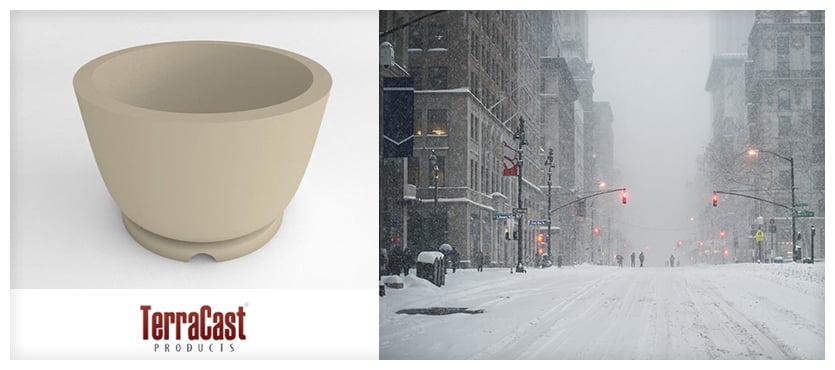Are you in a frigid region where snow and icy conditions are common? Suppose you are a business or establishment that keeps any outdoor plants, either for aesthetic or functional reasons. In that case, it is time to determine whether your plants are adequately protected to last through the winter.
With the cold setting in, you should evaluate whether the planters you use can protect them from winter weather and ensure their survival. One way you can do that is by choosing resin planters over alternative materials to house your plants. If you are unfamiliar with resin or how it can protect your plants in the cold, here are several reasons why you should consider housing your plants in them over alternative options!
Resin is Resistant to Water Damage
One of the key reasons that make resin planters an ideal candidate to house plants outdoors in the winter is that the material is non-porous and non-hygroscopic. In other words, it is resistant to water damage as it does not absorb moisture from the environment.
Planters made from clay or ceramic, for example, will expand from collecting moisture and may crack when the water inevitably freezes, while wooden planters will break down and weaken over time from being sodden. That is why resin planters are suitable for cold environments since they are not vulnerable to water damage in the same way other materials are.
Resin is Resistant to Extreme Freeze and Thaw Cycles
In addition to being resistant to water damage, resin planters are also resistant to rapid and extreme temperature fluctuations. Freeze and thaw cycles involve the absorption of water that freezes overnight in cold temperatures before thawing in the morning as the sun rises. This constant cycle will cause cracks that will only worsen the longer a susceptible planter is exposed to the cycle. Resin is completely un-phased by this cycle and can easily withstand extreme weather conditions.
Resin is Resistant to Corrosion
Another advantage of using resin planters is that it does not corrode, rust, or deteriorate like metal planters. While metal planters may not absorb water and crack from over-expansion like ceramic or clay, water from rain, snow, or ice will inevitably cause rust to form – slowly degrading a planter over its lifetime.
With resin, this is a non-issue, as it does not rust and deteriorate like metal planters. You can count on them to last long-term without suffering from harsh winter conditions while offering the same durability and protection from physical damage that metal planters offer.
Resin is Lightweight and Easy to Move
While resin planters may be able to survive harsh winter environments, extreme weather conditions and snowstorms may force you to consider bringing plants temporarily indoors to protect them from harm. This is when resin’s lightweight composition makes it ideal in such circumstances.
Resin planters are not only durable and resistant to drastic temperature fluctuations, but also easy to move should your business or establishment need to relocate its plants for any reason. In the event of a snowstorm when certain plants cannot be kept outside, resin planters would be easy to move indoors and back outdoors when the storm abates.
Prepare for Winter with TerraCast’s Resin Planters
With the cold weather setting in, it is time to ensure your plants are adequately protected from extreme winter weather this season. If you are looking for the best planters to house your plants, TerraCast’s resin planters are exceptionally durable, lightweight, and resistant to exterior elements and damage. Contact TerraCast today to start preparing your plants for winter weather!

